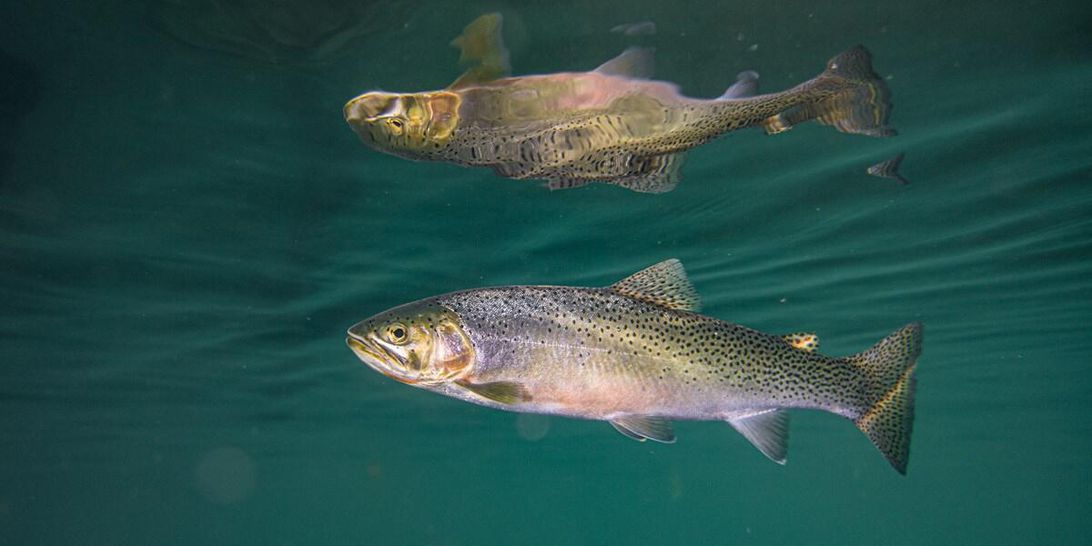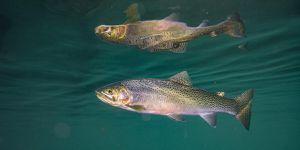
National Park Service
But he is worried that addiction to drugs in the water could change the natural behavior of fish, possibly causing them to look for a fix by gathering near places where contaminated water is discharged.
The addicted fish also showed lower activity levels than trout that were unexposed to the drug, with traces of meth remaining present in their brains for up to 10 days after being removed from the contaminated water.
You’re probably aware that household chemicals, medicines and prescription drugs can work their way through wastewater treatment facilities to contaminate rivers and streams, but the problem isn’t limited to legal substances. New research shows that illicit methamphetamines in the wild can wind up in the brains of fish, passing one of human society’s ills further down the food chain.
A trout probably not suffering from withdrawal. Yet.
CNET Science
The notion of fish struggling with the phases of addiction, including withdrawal and the drive to get that next fix, might seem bizarre or even funny, but it isn’t far from the truth, according to scientists.
Horký cautions that the lab-based results don’t serve as proof that rivers are swarming with addicted fish.
Horký led a team that studied the effects of meth in waterways on brown trout and published the findings in the latest issue of the Journal of Experimental Biology.
If you think carp swarming near the edge of a feeding pond can be unsettling, addicted trout gathering near your local wastewater discharge is a new and sad kind of apocalyptic vision. The researchers concluded that even low levels of drugs that make it to rivers and streams can affect wildlife.
The researchers aim to conduct further research in the field to get a better idea of just how far meth addiction has spread underwater.
“Whether illicit drugs alter fish behavior at levels increasingly observed in surface water bodies was unclear.”
From the lab to your inbox. Get the latest science stories from CNET every week.






